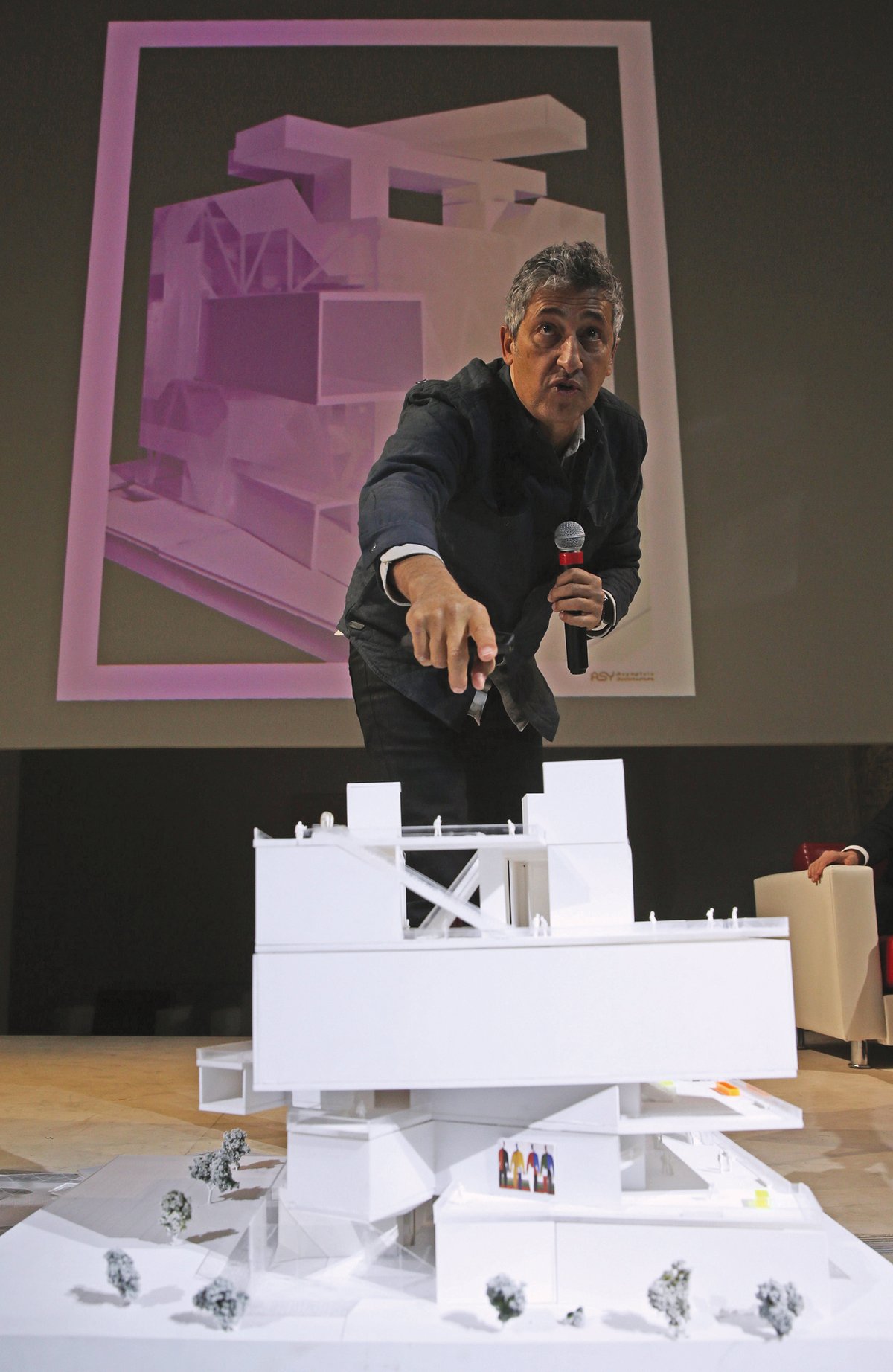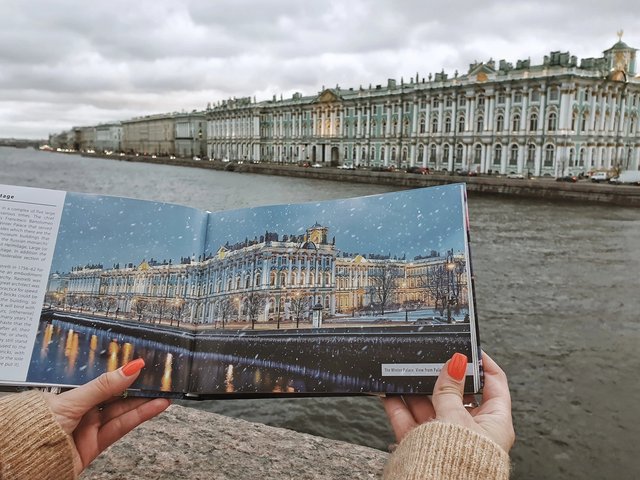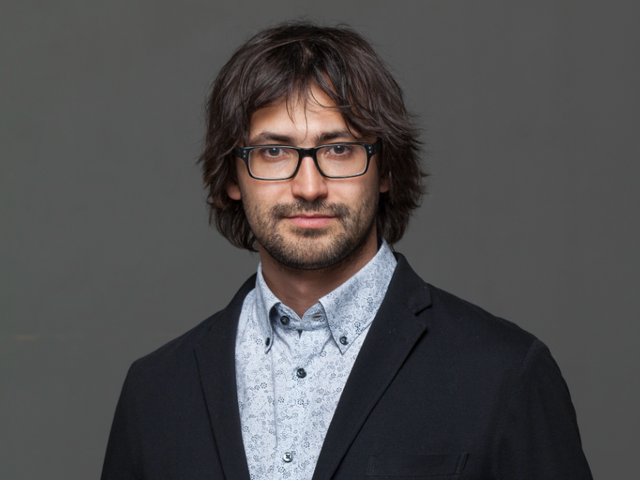Hani Rashid, one of three top international architects currently working on major museum projects in Moscow, says he has been “unceremoniously” dropped from designing a contemporary outpost of the State Hermitage Museum in the Russian capital.
Rashid, the co-founder of New York-based Asymptote Architecture, says he was ghosted by the Moscow city government and LSR, a St Petersburg real estate developer. “We received all of the necessary approvals for this project but we stopped hearing news from Moscow about a year ago, just when we were ready to pour the concrete,” he says.
He took to Instagram—in a post he has since deleted—to express his shock on 6 October when he learned that a local partner had been selected for the project instead: “Waking up to some surprising news this morning that our multi-year efforts designing (with extreme passion) a new Hermitage Museum for Moscow have been simply and unceremoniously abandoned, only to be replaced with this project by Moscow-based Speech architects.”
LSR commissioned Hermitage Moscow in 2015 for Zilart, a residential and commercial complex and cultural quarter being developed on the site of the former Zil Soviet car factory.
“We wanted to evoke the sense of scale and grandeur of the Zil factories, what they meant to modern Russian industrial history, and how they were part of the significant Russian Constructivist tendencies of the time they were built,” he says.
Over the course of the project, communication with Andrei Molchanov, the chairman of LSR, abruptly stopped, Rashid says. “We had an excellent working relationship with LSR throughout the entire design phase; Mr Molchanov was very hands-on,” he says. “But at some point, he turned cold, and we then found ourselves completely in the dark. Only after seeing the Speech project announced did we understand what must have happened without our knowledge. We were never contacted or officially asked to change anything or alter any of our design work, which I must admit was terribly odd and very abnormal in the professional environments we are used to.”
Rashid’s dismissal
On 29 September the city announced it had accepted a 12,000 sq. m design by Sergei Tchoban of Speech. Tchoban founded Speech with Sergei Kuznetsov, who became the chief architect of the city of Moscow in 2012.
Tchoban is described on the city’s website as “the best architect in Europe in 2018”—he won the European Prize for Architecture that year—and his Hermitage design as “fully satisfying the management of the [museum]”. Rashid is dismissed in the final sentence: “The previous concept developed by Hani Rashid was rejected.”
Rashid says he was invited to work on the Hermitage project via a phone call from Nicolas Iljine, the adviser to Mikhail Piotrovsky, the director of the Hermitage.
In a statement to The Art Newspaper, Piotrovsky said the Hermitage did not sign off on the change in architect: “All contracts for the construction of the Hermitage in Moscow have now expired. New negotiations are expected. As I understand it, the investor cannot execute Hani Rashid’s project. It is too expensive for him and too difficult to execute. Changing investors, contractors, architects is a common thing. In the case of Moscow, the Hermitage is neither the customer nor the builder.”
The Moscow project is the Hermitage’s first satellite in Russia initiated by a developer rather than local government. Previous efforts to build a branch in Barcelona have so far been left unrealised.
Dmitri Ozerkov, who is in charge of contemporary art at the Hermitage and its future Moscow branch, says talks on a new building contract are in the final stages. LSR says that the tentative completion date for Tchoban’s design, fully financed by the developer LSR, is 2024.
‘Very energy-consuming’
In a statement issued by its press department, LSR says that Rashid’s design did not meet the project’s needs and that Rashid had been “informed accordingly, and his work was paid in full”.
Kuznetsov, meanwhile, says that “the percentage of exhibition space was too small in relation to the total volume of the building” in Rashid’s design, and that “the project turned out to be very energy-consuming, which is an important factor in the modern world”.
Tchoban’s project, Kuznetsov says, “looks different, but is no worse in terms of architecture, and it meets all the customer’s requirements and involves the effective use of museum spaces.”
According to Tchoban, his work on large museum projects in Russia, Italy, Germany and the Vatican makes him a viable candidate for the Moscow job. “The project was approved by the expert examination and received a building permit,” he says. “The project was repeatedly discussed with Ozerkov, was shown to Piotrovsky and received his approval.”
This is not the first time that Rashid lost out on a major Russian building project. In 2018, he was commissioned to build one of Russian President Vladimir Putin’s regional culture centres in Vladivostok but was soon pressured to resign. “It was a slightly different situation that time,” he says. “We were suddenly informed that a sanctioned entity would be involved in the financing of the project and so we were forced to bow out politely in light of US political and legal issues.”
In another about turn his firm was invited back to Vladivostok last year, then ghosted and replaced with the Norwegian firm Snøhetta.
In 2013, the British architect Norman Foster walked away from a $670m redesign of the Pushkin State Museum of Fine Arts after being publicly criticised by Kuznetsov.





